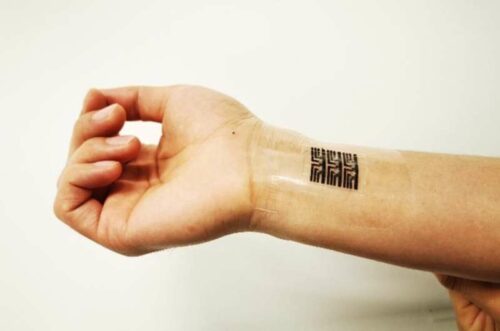Researchers at the University of Chicago’s Pritzker School of Molecular Engineering (PME) developed a neuromorphic device that can use artificial intelligence (AI) to process massive amounts of real-time health data.

This innovative device is a major advancement in wearable health technologies. A flexible, stretchable computing device that processes data similarly to the human brain has been developed by researchers at the University of Chicago’s Pritzker College of Molecular Engineering (PME). The device, which is detailed in the journal Matter, aims to change how health information is processed.
“With this work, we’ve bridged wearable technology with artificial intelligence and machine learning to create a powerful device which can analyze health data right on our bodies,” said Sihong Wang, a materials scientist and Assistant Professor of Molecular Engineering.
The health care researchers envision wearable biosensors to trace sophisticated indicators of well-being along with ranges of oxygen, sugar, metabolites, and immunological components in blood. The ability of these sensors to adapt to the skin is one of the numerous factors that made their development possible. The evaluation becomes ever more complex when such skin-like wearable biosensors appear and begin to gather an increasing amount of data in real-time. A single piece of information must be considered in the context of the patient’s history and other aspects of their health.
“Sending health data wirelessly is slow and presents several privacy concerns,” he said. “It is also incredibly energy inefficient; the more data we start collecting, the more energy these transmissions will start using.” Wang’s team tested the new device’s efficacy by using it to look into electrocardiogram (ECG) data that represented the “electrical” activity of the human heart. They confirmed that the chip could accurately classify heartbeats regardless of whether it was stretched or bent.
“If you can get real-time information on blood pressure, for instance, this device could very intelligently make decisions about when to adjust the patient’s blood pressure medication levels,” said Wang. That kind of automatic feedback loop is already used by some implantable insulin pumps, he added.“Integration of artificial intelligence with wearable electronics is becoming a very active landscape,” said Wang. “This is not finished research, it’s just a starting point.”
Click here for the published research paper







